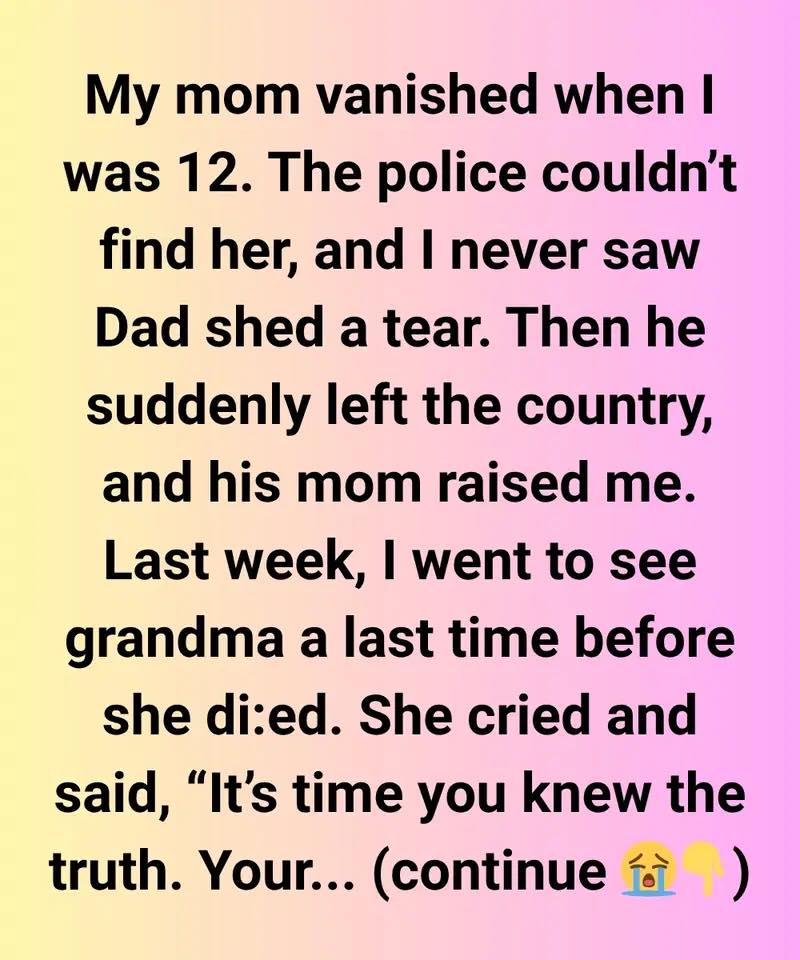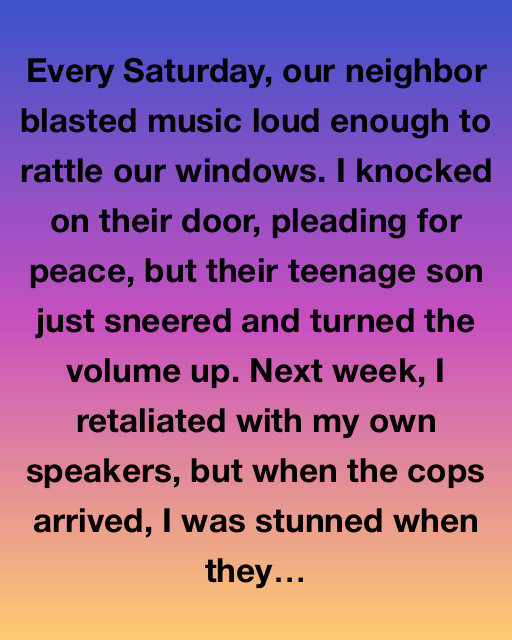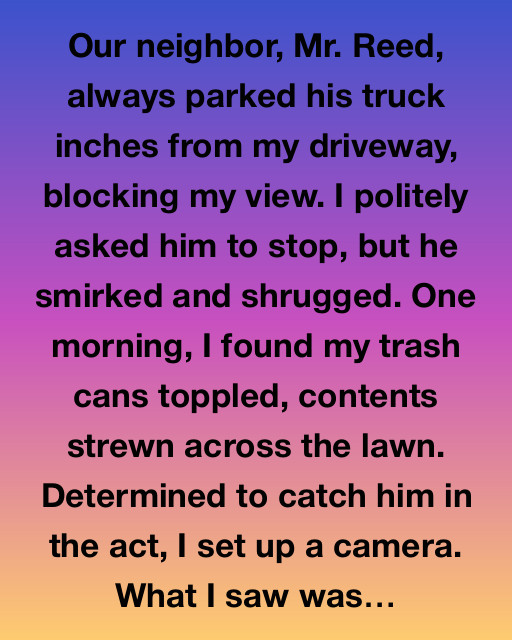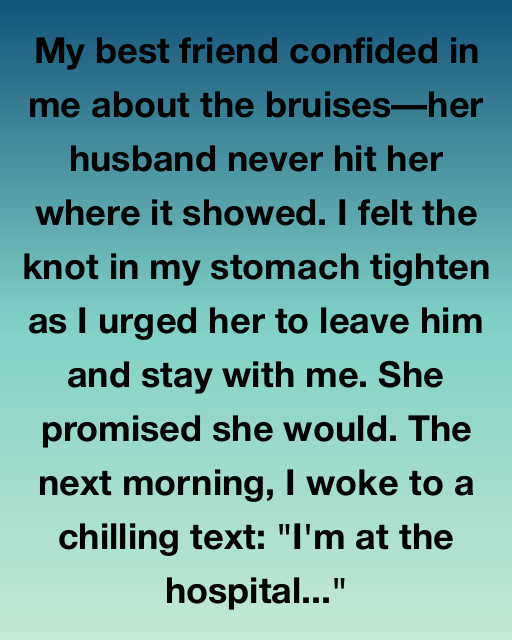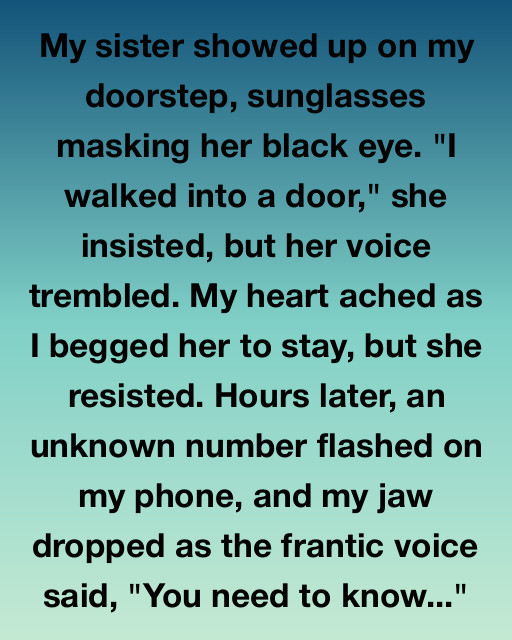My mom vanished when I was 12. The police couldn’t find her, and I never saw Dad shed a tear. Then he suddenly left the country, and his mom raised me. Last week, I went to see grandma a last time before she died. She cried and said, “It’s time you knew the truth. Your mother never left us willingly.”
I sat on the edge of her bed, the smell of old flowers and disinfectant heavy in the air. Grandma took my hand with a grip stronger than I expected for someone so frail. She looked into my eyes and whispered, “Your dad… he did something terrible.” My heart started pounding, each beat thudding in my ears like a drum. I asked her what she meant, but her breathing turned shallow, and she just kept repeating, “He did something awful. I should have told you sooner.”
I couldn’t sleep that night. I kept hearing her voice echoing in my head. The next morning, I rummaged through Grandma’s old boxes, desperate for any clue. I found a faded envelope addressed to my mother in shaky handwriting. Inside was a letter she’d never mailed, begging Mom to come back home and forgive Dad. But the date on the letter was two weeks after Mom had disappeared. That didn’t make sense. Why would Grandma write to her if everyone thought she’d just run away?
I remembered the attic door, always locked when I was a kid. It was still locked, but I found the key in a small tin taped under Grandma’s dresser. My hands were shaking as I climbed the creaky stairs. The attic smelled musty, like old wood and forgotten memories. I pulled the chain for the single lightbulb, and the dim yellow glow revealed boxes piled high. But what caught my eye was an old trunk tucked behind some Christmas decorations.
I struggled to pull it into the open. It was heavy, and the metal latches were rusted. When I finally pried it open, I found women’s clothes that belonged to Mom. Some were neatly folded; others were stuffed in like someone had been in a hurry. Beneath the clothes, I found a small leather-bound journal with Mom’s initials, E.C., on the cover. I opened it and read the first page: “If something happens to me, please know I was trying to leave him.”
I felt like the air was sucked out of the attic. My dad. Was he abusive? Did he hurt her? I read further. Mom wrote about Dad’s angry outbursts, how he started accusing her of cheating, and how he once threatened that if she ever tried to leave, she’d regret it. The entries stopped abruptly. The last one ended mid-sentence: “Tonight I’ll…” and that was it.
I sat there for hours, reading and rereading the journal. When I finally went downstairs, I called Detective Serano, who had investigated my mom’s disappearance. He was long retired, but he remembered the case. His voice grew quiet when I told him what I found. “We always suspected foul play,” he said. “But we never had evidence. Your dad skipped town right after… it looked bad, but without a body, we couldn’t do anything.”
I asked if they could reopen the case. He said they’d need something concrete. That night, I couldn’t stop thinking about the crawl space under the house. It always creeped me out as a kid because Dad used to go down there late at night. I never understood why. The next morning, I grabbed a flashlight and went outside. The entrance was behind the garden shed, covered with old boards. I ripped them off and crawled into the darkness.
The air was damp and cold. Cobwebs clung to my face. I moved deeper until the beam of my flashlight landed on a patch of disturbed dirt. My chest tightened. I started digging with my hands, dirt caking under my nails. A few inches down, I felt something solid: a piece of fabric. I pulled, and the smell hit me like a punch in the face. My stomach lurched. I saw the outline of a skeleton, a thin gold chain around the neck—the one Mom always wore.
I backed out of the crawl space, gasping, tears streaming down my face. I called 911, my hands shaking so hard I almost dropped my phone. When the police arrived, I showed them the journal and the remains. The old detective was right behind them. He looked at me with sad eyes and said, “You did the right thing.”
The next days were a blur of interviews, statements, and forensic teams coming in and out of Grandma’s house. They confirmed the remains were Mom’s. The medical examiner said there were signs of blunt force trauma on her skull. It was clear she hadn’t just vanished; she’d been killed and hidden.
Interpol found my dad living under a different name in South America. They arrested him, and he was extradited back here to stand trial. I went to every hearing. Seeing him in that courtroom, older and weaker but still wearing the same smug expression, made my blood boil. When they read the guilty verdict, I felt an overwhelming sense of relief. I could finally grieve properly.
During those months, I cleaned out Grandma’s house. I found more letters—some from Mom to Grandma, talking about wanting to escape and start a new life with me somewhere safe. I realized how much she loved me, how much she fought for us. She wasn’t weak or careless. She was brave but trapped.
At Mom’s belated funeral, neighbors I barely remembered showed up. They told me how she was kind, always baking pies for people, always the first to help. They whispered apologies for not realizing what was happening behind our closed doors. That day, I felt her love wrap around me like a blanket, even though she was gone.
One afternoon, as I was sorting through old photo albums, I found a picture of Mom holding me as a baby, smiling brightly. I taped it to the fridge in my apartment, a daily reminder of her strength. I decided to keep Grandma’s house. I renovated it, filled it with light and laughter, invited friends over, and turned it into a place of healing instead of fear.
A few months after the trial, I got a message on social media from a woman named Halina. She said she knew my father from when he first moved abroad. They dated briefly, but she broke it off after he became controlling and angry. She had no idea about my mom, but she told me she always felt something was deeply wrong with him. Her message reminded me how close he came to hurting someone else. I was grateful fate intervened before he could.
Later, I found Mom’s old recipe box. I started cooking her meals, the ones she wrote about in her journal—pot roast with garlic, homemade peach cobbler. Each time I made them, I felt like she was right there with me, guiding my hands. Cooking became my therapy, my way of keeping her alive.
I decided to volunteer at a local shelter for women escaping domestic abuse. I shared Mom’s story, not as a tale of tragedy, but as a testament to resilience. Some women cried when I told them how strong she was, how her love still lived on. A few said it gave them hope. That alone made every painful memory worth sharing.
I also met Mirabel at the shelter. She was tough, funny, and fierce, with a smile that could light up a room. We bonded over our scars and our determination to break cycles of violence. We started dating slowly, carefully. For the first time, I learned what a relationship built on respect looked like. Mirabel showed me patience when I flinched at loud noises, kindness when I had nightmares. We grew together, healing side by side.
A year later, we held a small ceremony in the backyard of Grandma’s—now my—house. Friends, new and old, gathered under the blooming wisteria. We planted a magnolia tree in Mom’s memory, its petals a symbol of perseverance. We laughed, cried, and celebrated not just her life, but the new chapter we were building from the ashes.
Through it all, I learned that family isn’t defined by blood alone. It’s who stands by you, who lifts you up when you’re drowning. Grandma may have kept the secret too long, but she tried to do right by me in the end. Mirabel, my friends, and even the shelter community became the family I chose, and they chose me back.
In the quiet evenings, I’d sit on the porch, watching the sun dip behind the hills, feeling the breeze carry the scent of magnolia blossoms. Sometimes I’d talk to Mom, telling her about my day, about how much I missed her but how I was okay now. I imagined her smiling, proud that I survived, proud that I was finally living the life she wanted for me.
Looking back, I don’t hate my father anymore. Hating him would keep me chained to his darkness. Instead, I focus on remembering my mother’s courage. I honor her by living fully, by loving fiercely, by helping others find their way out of fear.
The hardest thing I learned is that the truth can hurt, but lies kill—slowly, silently. My father’s secrets destroyed our family, but the truth set me free. If you’re reading this and you’re in pain, please know it’s never too late to seek help, to tell someone, to escape. You deserve to be safe. You deserve to be loved.
I share this story not to dwell on tragedy, but to show that even when the past is dark, the future can be bright. Even when you feel alone, there’s someone out there who cares. There’s always hope, even if it takes years to find it.
So hug your loved ones today. Tell them you cherish them. And if you suspect someone you know is suffering in silence, reach out. A kind word, a listening ear, can mean the difference between despair and hope.
If you found strength or comfort in this story, please like and share it with someone who needs to hear that there’s always a way forward. Let’s spread awareness and love—one story at a time.
